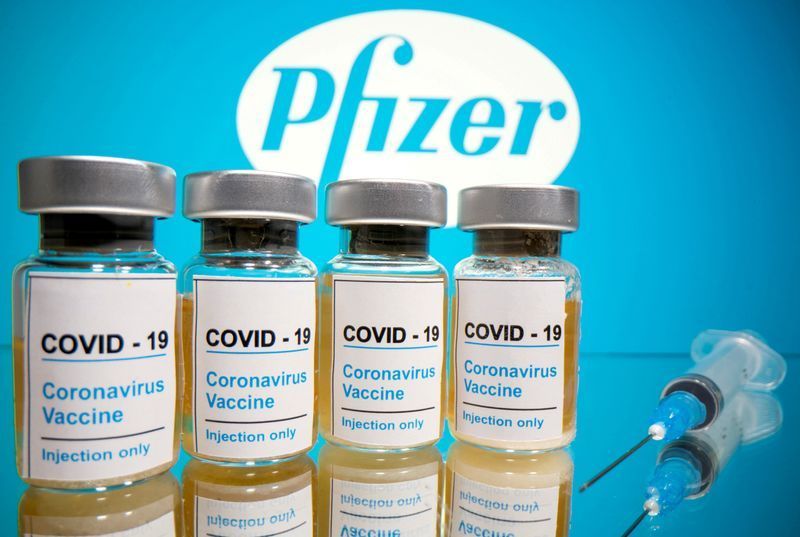
Kristen Choi Ucla Vaccine participant for Pfizer COVID-19 trial comes down with extreme symptoms as nurse at one point feared coming down with coronavirus.
A California nurse participating in Pfizer’s COVID-19 vaccine trials has warned of ‘grueling’ side-effects, with the woman at one point fretting she may have contracted the deadly virus.
Kristen Choi, an assistant professor of the School of Nursing at the University of California, Los Angeles, said she enrolled in August for the double-blind study of the experimental vaccine.
‘Volunteering for the trial felt like an honorable thing to do—and the 50% chance to be randomized to the vaccine early seemed equally compelling to me as a practicing nurse,’ Choi wrote in a paper published Monday in the journal JAMA Internal Medicine.
But even with her medical training, Choi said she was not prepared for her body’s adverse reaction to receiving the two-dose shot to mimic battling the virus.
‘Despite the extensive information I had on the research process and vaccine, on a personal level I did not get the message that I should anticipate a reactogenic response,’ Choi said.

‘Do I have COVID-19?’
Though she wasn’t told whether she was injected with the vaccine or a placebo, Choi said that she had a ‘strong suspicion’ that she received the actual drug based on her immune response, which included side effects such as fever, chills and muscle pain.
She said the severe side effects only came after second injection.
When she received the first shot, Choi said she experienced some soreness but ‘did not notice anything out of the ordinary.’
‘I could not begin to guess whether I had received the vaccine or the placebo,’ she wrote.
But when she returned a month later for the second dose, the experience was a different story.
‘My arm quickly became painful at the injection site, much more than the first time,’ Choi wrote. ‘By the end of the day, I felt light-headed, chilled, nauseous, and had a splitting headache.’
She went to bed early, only to wake up around midnight with a 99.4-degree fever.
Choi said she felt both ‘feverish and chilled’ in addition to being nauseated, dizzy, and hardly able to lift her arm from muscle pain at the injection site.
When she woke up a second time at 5:30 a.m., she had a 104.9-degree fever.
‘I was scared when I saw that I had a fever, and my gut reaction after months of scrutinizing myself for all the possible COVID-19 symptoms was: Do I have COVID-19?’ she said.
Choi was assured by a nurse at the research office that ‘a lot of people have reactions after the second injection.’
She said that she had a fever for the rest of the day, but that all of her symptoms were gone by the following day with the exception of a swollen bump at the injection site.
But then there were the questions.
‘I texted a few friends about my experience, and their response was the same: ‘Wait, does this mean you have COVID-19? Are you contagious?” she said.
‘I assured them I did not and was not, but every physician and nurse in the US needs to be prepared to have a conversation about adverse effects with patients.’
Choi says her symptoms disappeared after 24 hours and said that doctors need to warn patients about the side effects so that ‘the wrong message doesn’t go viral.’
She said it’s critical that health professionals explain that experiencing some of the symptoms or like in her cases, all of the symptoms of the virus, is ‘normal.’
‘They will need to explain that fatigue, headache, chills, muscle pain, and fever are normal, reactogenic immune responses and a sign that the vaccine is working, despite the unfortunate similarities with the disease’s symptoms,’ she said.
According to data from Pfizer’s phase I trial, adverse effects are common in adults between ages 18 and 55.
A total of 75 percent experienced fatigue, 68 percent had a headache, 33 percent experienced chills, 25 percent reported muscle pain and 17 percent had a fever.
Experiencing side effects are normal signs that the immune system is responding to vaccination.
Added Choi: ‘If this vaccine is approved, it is possible that most people receiving the vaccine could have [one] or more reactions to the vaccine like I did,’
‘Fortunately, my experience of having all symptoms together seems to be rare.’






